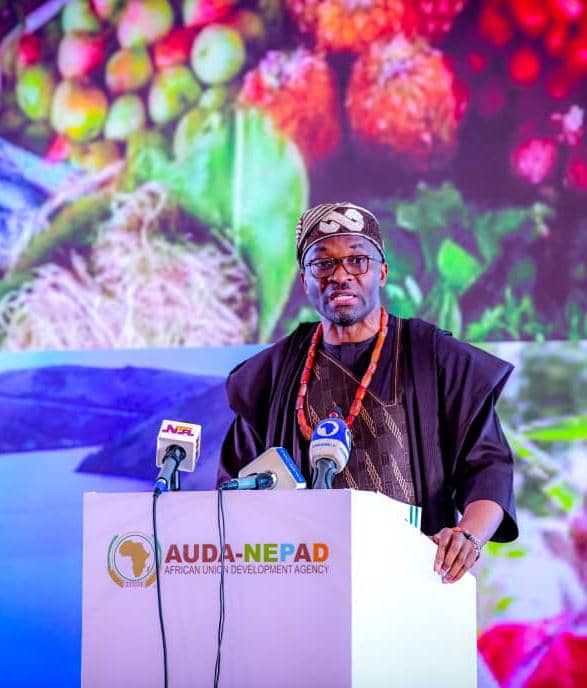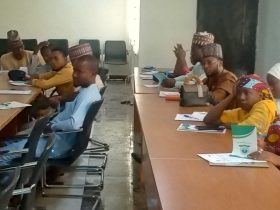Deputy Speaker of the House of Representatives, Rt. Hon. Benjamin Okezie Kalu has offered clues to how Nigeria can solve its food crisis and transform the agricultural sector into an engine of economic growth, food security, and environmental sustainability.
Delivering his address at the Implementation of Comprehensive Africa Agriculture Development Programme (CADAP), a high-level strategic engagement on climate change, food systems and resource mobilisation in Abuja on Monday, Kalu stated that food security can be achieved by building resilient food systems, mobilizing resources effectively, and implementing effective climate change mitigation strategies.
The Deputy Speaker noted that Nigeria is at a crossroads regarding her food security and agricultural potential, saying that though challenges abound, with all hands on deck the problem can be resolved.

Recalling that in July 2023, President Bola Tinubu declared a state of emergency on food security, Kalu said that this stark declaration underscores the urgency of our situation.
He said that with a growing population, climate change’s impact on agriculture, and global economic uncertainties, ensuring food security for all Nigerians has never been more crucial.
He also said that the Africa Union Development Agency (AUDA-NEPAD)’s Comprehensive Africa Agriculture Development Programme (CAADP) offers a roadmap to unlock the potential, adding that the program with its focus on building resilient food systems, resource mobilization, and climate change mitigation strategies, aligns perfectly with national aspirations.
He said: “Our farmers, the backbone of our nation’s food production, face immense challenges. From limited access to modern tools and financing to crumbling infrastructure, their potential often remains untapped.
Yet, initiatives like CAADP offer a beacon of hope. By empowering these heroes with the knowledge, resources, and market connections they deserve, we can build a food system that thrives, come rain or shine.
But resources alone won’t cut it. We need a collective effort, a hand-in-hand between government, businesses, and communities. Let us create an environment that welcomes private investment, one that prioritizes responsible practices and ensures every Naira counts.

“We must explore innovative financing, tapping into new ideas like blended finance and crowdfunding to unlock the potential that lies dormant. Climate change casts a long shadow over our fields.
It’s time to embrace smart solutions, like drought-resistant crops and water-saving techniques. Sustainable land management isn’t just a buzzword; it’s the key to ensuring our food security remains unshakeable, even in the face of a changing climate.
And let’s not forget the harvest itself. Food storage facilities lie in disrepair, and processing infrastructure is woefully inadequate.
By investing in these crucial areas, we can not only reduce the heartbreaking waste that plagues our nation but also create jobs and inject much-needed growth into our economy.
This High-Level Strategic Engagement is a critical step towards translating these aspirations into action.
“Let us share our expertise, collaborate on solutions, and collectively work towards achieving the following goals: Increase food production by at least 25% within the next five years. 2. Create 10 million new jobs in the agricultural sector by 2030. Reduce post-harvest losses by 50%. Achieve net-zero emissions in the agricultural sector by 2050. Let us seize this opportunity, turn challenges into opportunities, and work together to build a brighter future for all Nigerians.”
Kalu also highlighted the efforts of his office at achieving food sufficiency in the South East through the Peace In South East Project (PISE-P).
According to him, the initiative which canvasses a non-kinetic means of restoring peace in the region is also championing food security through its pillar of agriculture.
Giving heed to the maxim that a hungry man is an angry man, Kalu said that PISE-P recently launched “Food for Peace” where some food items were distributed to assist the people in the communities.
He however said that the ultimate target was to achieve food sufficiency through the agriculture pillar of the initiative for the region.












Leave a Reply